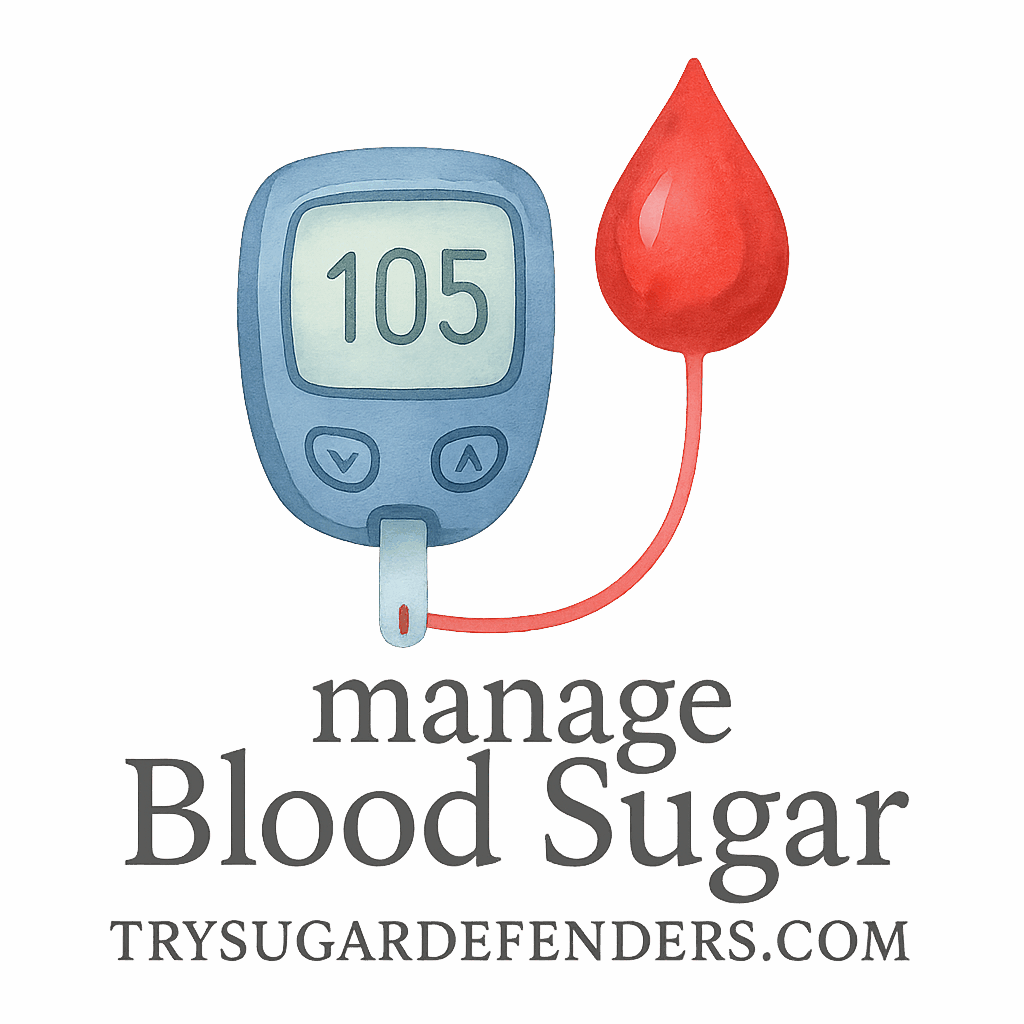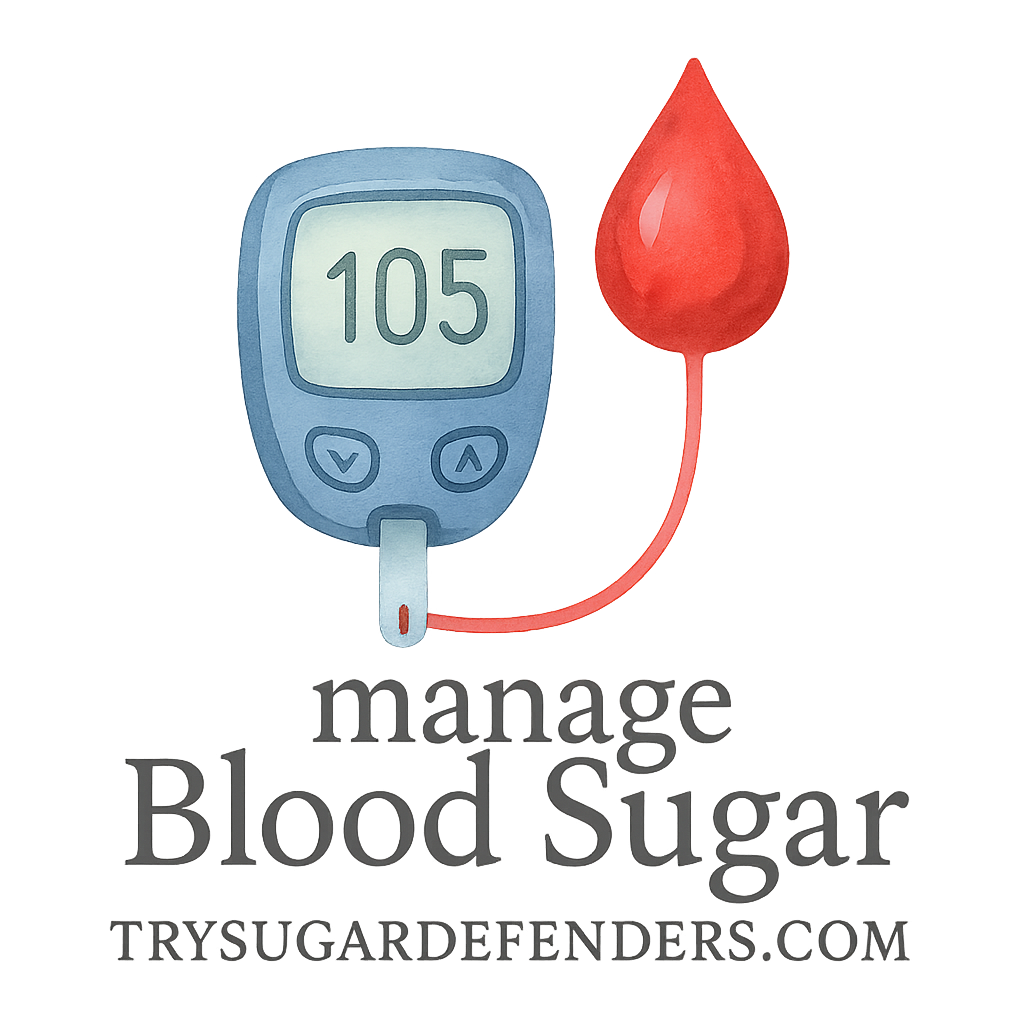Let’s be honest—most of us know that sugar levels and diet go hand in hand. But sleep? That one doesn’t get the attention it deserves. If you’re trying to get your blood sugar under control, sleep is your secret weapon. The right sleep habits can literally change how your body processes glucose. Let’s dive into the 7 sleep habits that help regulate blood sugar—you’ll be surprised how much they matter!
Why Sleep Matters for Blood Sugar Control
It’s easy to overlook the connection, but sleep has a major influence on blood sugar levels. In fact, poor sleep quality or duration can cause glucose to spike and insulin sensitivity to drop—bad news for anyone trying to stay healthy or manage diabetes.
You can explore more helpful lifestyle changes at TrySugarDefenders.com/exercise-lifestyle for a complete guide on living a more balanced life.
The Science Behind Sleep and Glucose Metabolism
Hormones at Play During Sleep
While you sleep, your body gets busy regulating key hormones like insulin, cortisol, and growth hormone. These hormones play a big role in how your body uses and stores glucose. Poor sleep throws them off balance, which can send your blood sugar on a rollercoaster ride.
Sleep Deprivation and Insulin Resistance
Missing just a few hours of sleep can increase insulin resistance, making your body less effective at moving sugar out of the blood and into the cells. Long-term? That could mean chronic health problems.
Want to dig deeper into the behavioral side of things? Head over to TrySugarDefenders.com/behavioral-mental-strategies.
Habit 1: Maintain a Consistent Sleep Schedule
Why a Regular Sleep Routine Matters
Your body has an internal clock—also called the circadian rhythm—and it loves routine. Going to bed and waking up at the same time every day keeps your glucose regulation on track.
Tips to Build a Sleep-Wake Cycle
- Set a strict bedtime and stick to it—even on weekends
- Avoid hitting snooze
- Use a sleep-tracking app (see TrySugarDefenders.com/monitoring-tracking)
Explore more sleep tech at TrySugarDefenders.com/tag/devices.
Habit 2: Prioritize Deep, Quality Sleep
What Is Deep Sleep and Why Is It Crucial?
Deep sleep is the stage where your body repairs itself. It balances blood sugar, boosts immune function, and resets hormonal levels. Missing out on it? Your blood sugar may not stand a chance.
Tricks to Improve Sleep Quality Naturally
- Limit screen time an hour before bed
- Use blackout curtains
- Keep your room cool and quiet
Want a full lifestyle overhaul? Check out TrySugarDefenders.com/exercise-lifestyle for more ideas.
Habit 3: Avoid Eating Late at Night
Blood Sugar Spikes After Bedtime Meals
Your digestion slows down at night. Eating late can cause sugar to linger in your bloodstream longer than it should, leading to elevated fasting glucose levels in the morning.
Healthy Evening Snack Alternatives
If you’re hungry before bed, opt for:
- Greek yogurt with a few berries
- A handful of nuts
- A boiled egg
For more dietary support, explore TrySugarDefenders.com/diet-nutrition and TrySugarDefenders.com/tag/diet.

Habit 4: Limit Caffeine and Alcohol Before Bed
How These Affect Your Blood Sugar and Sleep
Caffeine is a stimulant—it blocks melatonin (your sleep hormone). Alcohol might make you drowsy, but it disrupts REM sleep and messes with glucose levels. Double trouble.
Better Evening Beverage Choices
Try:
- Chamomile tea
- Warm almond milk
- Lemon water
Need more nutrition hacks? Visit TrySugarDefenders.com/tag/health.
Habit 5: Create a Sleep-Friendly Environment
The Role of Light, Temperature, and Noise
Your bedroom should be a sleep sanctuary. Too much light, a noisy environment, or an uncomfortable temperature can all interfere with your ability to fall—and stay—asleep.
Easy Bedroom Tweaks That Promote Better Sleep
- Set your thermostat to 65-68°F (18-20°C)
- Use a white noise machine
- Invest in blackout shades
Don’t underestimate how much this affects your blood sugar control.
Habit 6: Exercise—But Not Too Close to Bedtime
How Physical Activity Regulates Blood Sugar
Exercise helps your muscles use glucose more effectively. Regular physical activity can reduce insulin resistance and lower your average blood sugar levels over time.
Best Times to Exercise for Better Sleep
Morning or early afternoon workouts are best. Late-night high-intensity workouts? They can spike adrenaline and cortisol—making it harder to sleep.
Check out TrySugarDefenders.com/tag/fitness and TrySugarDefenders.com/tag/exercise for smart workout tips.
Habit 7: Use Stress-Reduction Techniques Before Sleep
Stress, Cortisol, and Blood Sugar Levels
Stress isn’t just in your head—it raises cortisol, which in turn raises blood sugar. Chronic stress and poor sleep go hand in hand, creating a cycle that’s hard to break.
Nightly Relaxation Rituals That Work
Try:
- Meditation or mindfulness
- Gentle yoga
- Deep breathing exercises
Learn more at TrySugarDefenders.com/tag/cbt and TrySugarDefenders.com/tag/mental-strategies.
Conclusion
Getting quality sleep isn’t a luxury—it’s a must if you’re serious about managing or preventing high blood sugar. By implementing these 7 sleep habits that help regulate blood sugar, you’re not just investing in rest—you’re investing in a healthier future.
From setting a consistent schedule to designing the perfect sleep space, small tweaks make a big difference. And don’t forget—your bedtime habits are just one part of the picture. Combine them with good nutrition, stress control, exercise, and monitoring tools from TrySugarDefenders.com to truly level up your health game.
FAQs
1. Can lack of sleep cause high blood sugar even if I eat healthy?
Yes! Even with a perfect diet, poor sleep can lead to insulin resistance and elevated glucose levels.
2. What’s the ideal amount of sleep for stable blood sugar?
Most adults need 7–9 hours of quality sleep. Anything less can throw your metabolism off track.
3. Should I stop eating after a certain time to help with blood sugar?
Yes, try to stop eating 2–3 hours before bed to prevent nighttime blood sugar spikes.
4. Is napping during the day bad for my blood sugar?
Short naps (20–30 minutes) can be helpful. But long or late naps might disrupt nighttime sleep.
5. Can sleep supplements help regulate blood sugar?
In some cases, yes. Always consult a doctor before starting any medical supplements.
6. Is melatonin safe for people with diabetes or prediabetes?
Generally, yes—but always consult your doctor or a health professional before taking it.
7. How can I track my sleep and its impact on blood sugar?
Use a sleep and glucose monitoring device. Visit TrySugarDefenders.com/monitoring-tracking for smart tools and tips.


